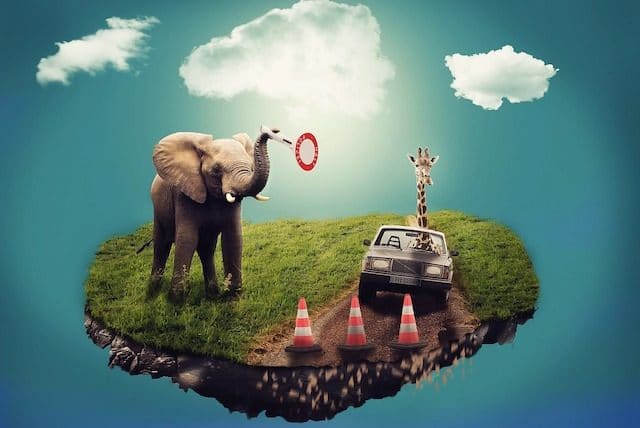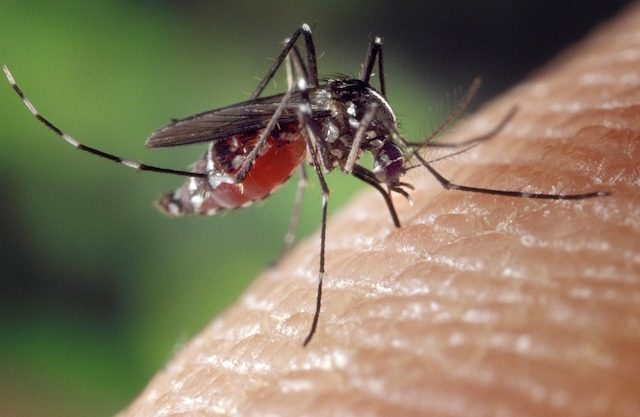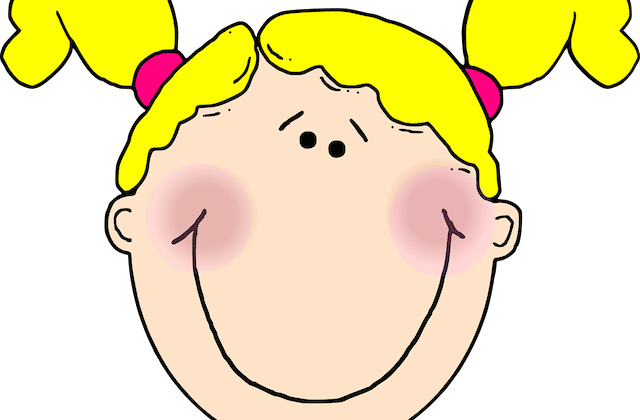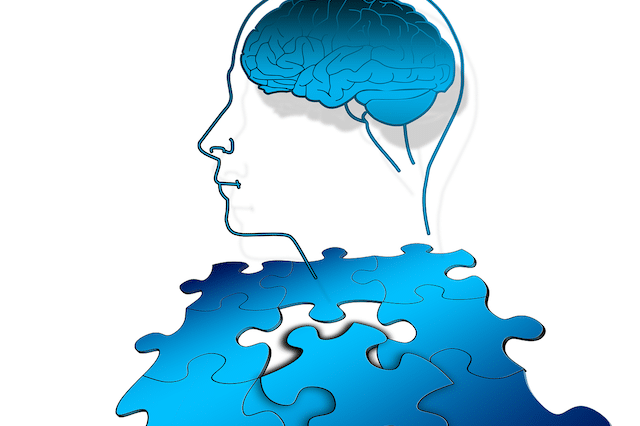Some have said that the human pursuit of knowledge is like awakening naked in a dark forest, and being asked “how did you get here?” Despite the many difficulties and false beliefs, man has undoubtedly made great strides in having a better understanding of our world. However, there are still ideas, behaviors, and concepts that we still fail to understand. Even the most simple concepts, like the world being round, hasn’t necessarily found footing. At TopTenz, we’ve decided to investigate 10 simple things that we don’t fully understand, in hopes that we can come to understand that we’re not out of the wilderness yet.
10. Some People Don’t Need Sleep

We know, we know. You’re thinking, what is sleep doing on this list? We all know the function of sleep and its importance for brain health and overall wellness. It’s widely believed that the brain needs sleep to generate new pathways and connections. Without sleep, the body would be unable to hold onto these connections and it would also struggle to rejuvenate itself, repair tissue, and synthesize hormones.
The curious case of short sleepers, profiled in Ying-Hui Fu’s lab at the University of California-San Francisco, demonstrates that we haven’t come to understand sleep as well as we think. In 2009, a woman entered Fu’s lab and gave a surprising account. No matter what time she went to bed, even if it was late at night, she would still wake up at the crack of dawn. She could never sleep in. Never. And according to the subject, it was the same for several members of her family. Skeptical at first, Fue and her colleagues, decided to compare the genome of different family members. The result was an amazing discovery: a tiny mutation in a gene called DEC2. The mutation was present in family members who identified as short sleepers, but not in members of the family who had normal length sleep, nor in 250 unrelated volunteers.
However, without more conclusive evidence the finding would not be well received. Fu was left with a conundrum: how do we prove that the DEC2 gene is tied to sleep?
In order to test their hypothesis, Fu and her team decided to breed mice to express the same mutation of the “short sleepers.” The results proved that their hypothesis was correct: the mice with the mutation performed just as well as regular mice, in terms of physical and cognitive tasks, while sleeping substantially less.
Fu’s subject would relay that her short sleeping abilities allowed her to finish college in just two and half years and has generally given her ample time to become a more fulfilled person. Imagine, having 60 extra days a year. That’s a reality that future generations will certainly enjoy.
9. We Still Don’t Know How Many Species There Are on Earth

Since Noah and his Ark, human beings have attempted to categorize and catalogue the different species that we share the planet with. You’d think we’d be able to have a concrete understanding of the other creatures that roam this planet with us, but we really don’t. In fact, it’s almost embarrassing how far ranging our estimates are. Most taxonomists believe we haven’t even scratched the surface in discovering all the creatures that live on the planet. After nearly 250 years of work, and the findings of over 15,000 new living beings each year, taxonomists still shy away from coming up with concrete estimates of how many species inhabit the planet Earth.
Scientists have identified nearly 8.7 million species, but that number is constantly challenged by scientists presenting new methods and models for extrapolation. One concept proposed by Richard May, an evolutionary biologist, is that the diversity of land animals increases as they get smaller and, granting that we’d discovered most species of big animals, he used them as a model for smaller species and concluded that there are 10 to 50 million species of land animals.
Many might be asking why it is so difficult to come up with a finite number? One of the biggest reasons is that 99 percent of all living space is under the ocean, and we’ve explored less than 10 percent of it.
8. We Know Dreaming is Important, but We Don’t Know Why

Sigmund Freud believed that dreams are a window into the unconscious mind, which express hidden feelings that are repressed or that we’re simply unaware of. And while that may not be true, it’s just one of the many theories on the nature of dreams that have not resulted in fundamental answers. What we do know for certain is that everyone dreams. The most vivid dreams occur during the REM cycle, when the brain is most active, and while it may not feel like it, but experts claim we dream at least 4 to 6 times per night.
If we’re said to dream 6 times a night, and rarely remember our dreams, what could possibly be the purpose? Why do we remember some dreams and not others? We simply have no answers. What we do know is that dreaming is important to our health and well-being. A study in which researchers woke subjects just as they were drifting off into REM sleep found that those who were not allowed to dream experienced: increased tension, anxiety, depression, difficulty concentrating, lack of coordination, weight gain, and a tendency to hallucinate.
We guess that we’ve found new meaning in the phrase “never stop dreaming.”
7. Laughing: A Universal Language?

Something as universal as laughter would seemingly be easy to explain. It’s not. Like dreams, laughter is a powerful display of our unconscious. Laughter is involuntary, and thus is a window into our sensibilities. Think about it. Laughter changes our facial expressions, elicits noises (some more flattering than others), and is without question contagious. Who hasn’t been a room where everyone breaks out into fits of laughter?
So what triggers it? It’s not as simple as you think.
Studies have shown that laughter is less about humor and more about social interaction and communication. Laughter is first exhibited in a child at three and a half to four months of age, well before speech, and as such laughter, similar to crying, is a way for an infant to interact with the mother. The idea that laughter is another form of communication was studied by researchers who went to local malls and city sidewalks and recorded what happened just before people laughed. Over the course of nearly ten years, and observing more than 2,000 cases of naturally occurring laughter, “[they] found that most laughter does not follow jokes. People laugh after a variety of statements, such as ‘Hey John, where ya been?’ and ‘Here comes Mary.'” It is not a leap to suggest that laughter supplements language to undress situations and to better form relationships or create bonds.
6. Yawning Cools the Brain

Another involuntary action that we’ve been unable to come to terms with is yawning. A behavior that occurs across species still has managed to puzzle scientists. A widely held belief that yawning occurs so oxygen can enter our bloodstream and to wake us up when we’re becoming drowsy has actually been disproven. Steven Platek, a psychology professor at Georgia Gwinnett College, is one of the many scientists who have said there is zero evidence that yawning affects levels of oxygen in the bloodstream, blood pressure, or heart rate.
The pervading theory is that the purpose yawning is to cool down the brain. The importance of scientific inquiry is that while eliminating one hypothesis it can make way for another. Subsequently, with studies showing that yawning does not affect levels of oxygen in the bloodstream, other experiments showed that yawning actually changes the temperature of the brain itself.
A Gallup study that took place in 2007 revealed that holding hot or cold packs to the forehead influenced how often people yawned, in instances where they saw others doing it. Additionally, when subjects held a warm pack to their forehead, “they yawned 41 percent of the time… (and) when they held a cold pack, the incidence of yawning dropped to 9 percent.”
Mechanically speaking, stretching our jaws leads to an increasing rate of blood flow to the skull and by inhaling at the same time, the air changes the temperature of the flow, leading to cooler blood flowing to the brain.
Experiments done on our favorite test subjects, mice, supported the conclusion that “an increase in brain temperature was found to precede yawning. Once the tiny rodents opened wide and inhaled, the temperature decreased.”
5. Mosquitoes Like Some More Than Others

“They like you more.” That’s the common refrain when a night out on the beach leads to one family member being left ravaged by mosquitoes. The truth is that remark has almost been taken as explanatory. In reality, most of us don’t know why some individuals are targeted more than others. Scientists have come to the believe that 20% of population is more attractive to mosquitoes than others.
Scientists have not settled on what exactly distinguishes that 20 percent, but one of the leading theories is blood type. A study found that Type O blood was twice more likely to be bitten than Type A. The data is less conclusive with Type B with researchers concluding that it falls somewhere in the middle of desirable and undesirable for mosquitoes.
4. Blushing May Have Started as a Social Custom

“Man is the only animal that blushes. Or needs to.” The eternal words of Mark Twain need only to tell us why exactly man “needs to.” It seems to be the most basic of human behaviors. We blush when we’re embarrassed. Being the product of an evolutionary process that eliminates characteristics that lower survival, how did blushing, a response that shows vulnerability, manage to manifest itself in all cultures and peoples?
Darwin remained puzzled until his death, but that did not stop other scientists from attempting to explain this behavior.
Currently, one of the leading theories of the origin of blushing is that it began as an appeasement ritual: to submit to the authority of dominant members of a group. Naturally, submitting to said member would then increase one’s chances of surviving in that group.
Scientists believe that as our social interactions later became more complex, it became intertwined with emotions like guilt, shame, and embarrassment. And as the rearing of family became of the utmost importance in agrarian societies, neuroscientists note that it may have been viewed as socially desirable and attractive for women to blush and therefore reveal honesty to men.
3. What’s the Deal With Pubic Hair?

No longer hairy apes, we’ve evolved and lost most of our thick wool of hair that seemed to represent that earlier period in our evolutionary past. However, a reminder of that history remains in the most unlikely of places: hair in our genital regions. What purpose could pubic hair possibly have? If you’ve been following along, you’ll know the answer is far from straightforward.
One of the most popular theories is that “since thicker hair gathers in regions where we have apocrine (scent) sweat glands as well as eccrine (cooling) ones, it may serve to waft odors that signal sexual maturity.”
Just another example that we’re just one small piece in a long fabric of evolution.
2. Kissing Isn’t Universal

For us at TopTenz, we were surprised to learn that kissing was not a universally practiced show of affection. It turns out just 46% of cultures engage in the locking of lips.
Probably the most likely proposition is that the custom began during child rearing, where the connection between a mother and an infant comes from the “mouth sensations associated with breastfeeding.”
In addition, earlier epochs, probably engaged in mouth-to-mouth feeding of chewed food, is a custom that’s still carried out by the Manus cultures of the Admiralty Islands. The act of premastication is used by women to remind children and descendants of their obligations to her.
Lastly, in terms of physiology, our lips are among the most sensitive parts of our bodies, with sensory neurons linked to our brain’s pleasure palaces. The benefits of which has shown that kissing reduces levels of the stress, hormone cortisol and increases the bonding hormone, oxytocin.
1. Consciousness is a Puzzle That’s Ever-Changing

The most complex concept on our list has been puzzling great thinkers for generations. In the 17th century, Descartes, a French philosopher, posited the notion that mind and body were completely separate. That began a philosophical battle that continues to this day. Without any answers, we will ask you to choose what camp you’re in.
Descartes was the earliest proponent of idealism – the idea that the mind and body are entirely separate. On the other hand there are the materialists, like Karl Marx, who believe that nothing exists apart from the material world (i.e. physical matter like the brain); materialist psychologists generally agree that consciousness (the mind) is the function of the brain.
So, we ask: where do you fall?